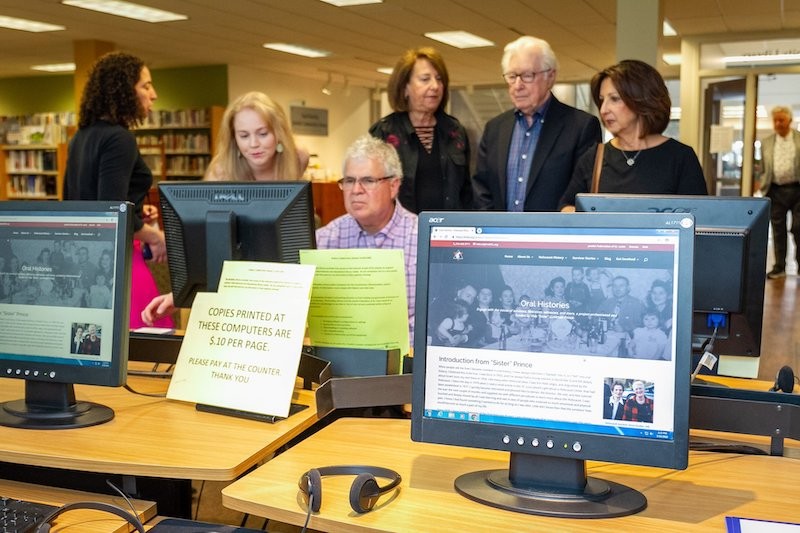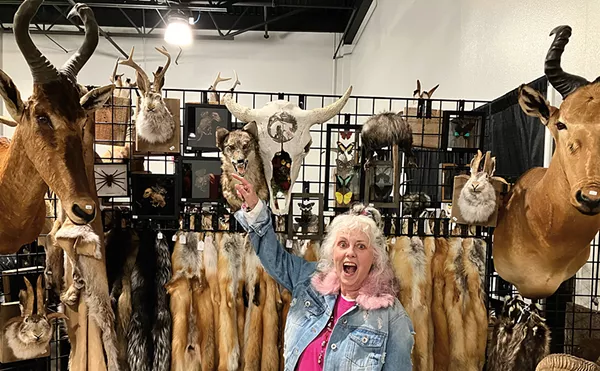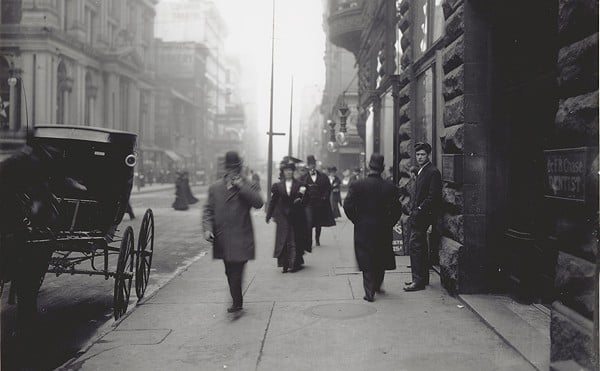
JAY BEAUVAIS
Vida Prince, center, embarked on interviews of local Holocaust survivors as a passion project. Now it's become an online archive.
In 1979, Vida “Sister” Prince saw an article in the paper showcasing the recently opened St. Louis Holocaust Center. After calling the director and offering to volunteer, Prince found that the center was looking for people to accompany Holocaust survivors as they shared their story in local schools. Although Prince was Jewish, she had no familial connection to the Holocaust. She had never even met a Holocaust survivor before. Still, she jumped at the opportunity to travel across St. Louis with these survivors.
It was during these sessions that Prince decided she wanted to do more. She wanted to help these survivors preserve their stories. So, she broke out the cassette tapes and started recording.
For the next 40 years, Prince interviewed Missouri residents who had experienced the Holocaust in some way, whether as Jewish survivors or even American soldiers. The result of her effort was unveiled on March 24, when the Holocaust Museum & Learning Center finally shared on its website all 144 oral histories compiled by Prince.
For a while, the Creve Coeur-based organization wasn’t really sure what to do with the recordings. They just sat there in one of the museum’s many closets. Occasionally, a family member would want to hear an interview, but it didn’t go past that.
Prince, however, knew her work was worth sharing.
“Every six months or so, she would walk into my office and say, ‘What are we going to do with this?’” recalls museum director Jean Cavender.
Prince always recorded her interviews on cassettes, which became problematic over time. The original cassette tapes were in danger of degrading, the museum says, even as the very idea of a cassette player was becoming obsolete.
Cavender then had an idea: Why not digitize the recordings? That would allow the museum not only to keep the cassettes from corruption, but also provide an audience for the survivors’ stories.
Now, anyone can access the stories on the museum’s website. With photos and detailed accounts, the online archive provides history lovers or even just the curious a lot to digest.
The museum has noticed a recent influx of Holocaust interest. It is a “statement about the level of hatred” in the world, Cavender says, that people have a “renewed interest in the histories and lessons of the Holocaust.” Cavender hopes educators and researchers can use the recordings in productive ways.
One week after the site launch, Cavender says she has received countless emails lauding the project. “Nothing but rave reviews,” she says.
The museum has hopes to incorporate the oral histories within future special survival galleries. But for right now, with the youngest Holocaust survivors in their 70s, the museum is just happy it found a space to properly present the survivors’ histories.
“The people who do talk about it, it’s very cathartic for them,” Cavender says. “They’re speaking for the people who did not survive the Holocaust themselves.”






